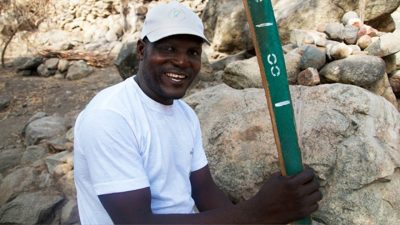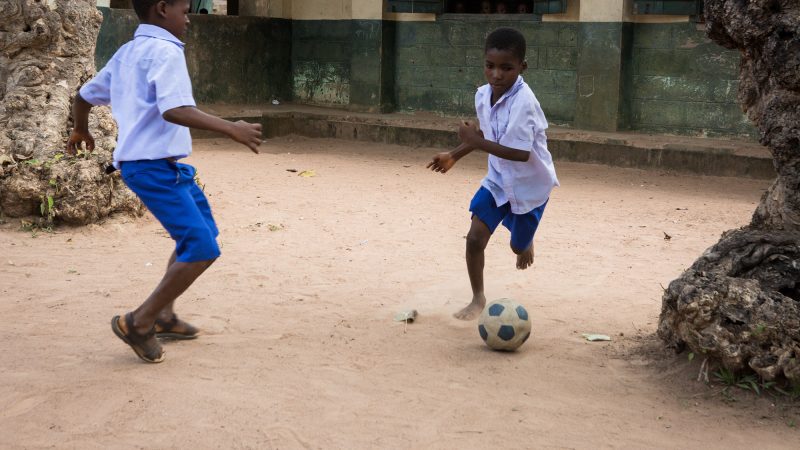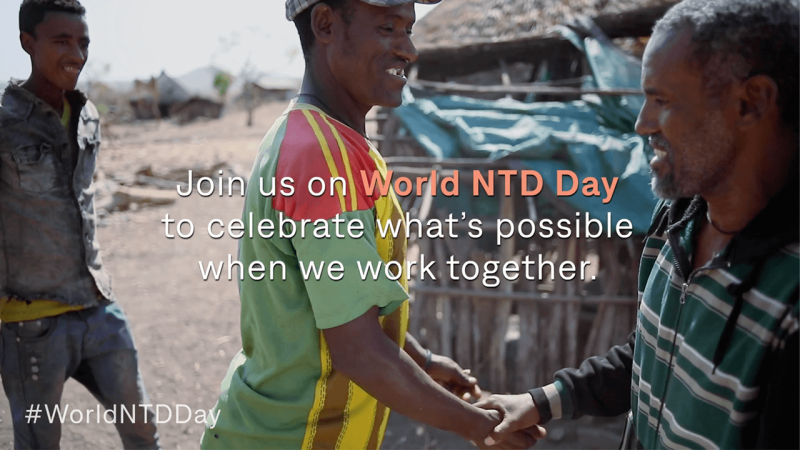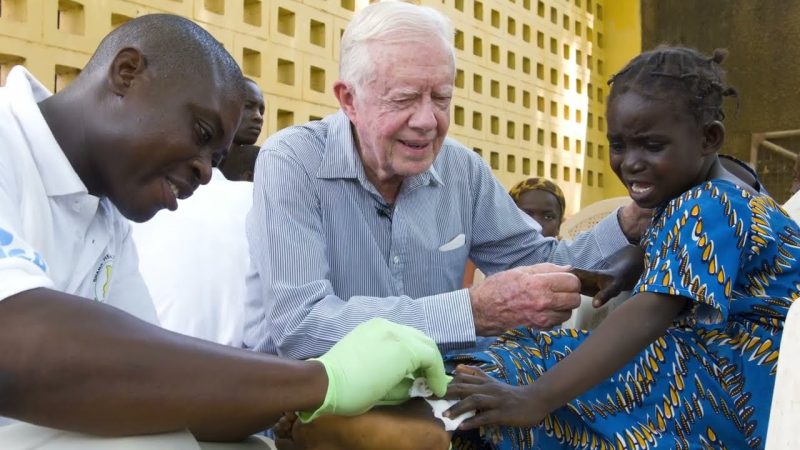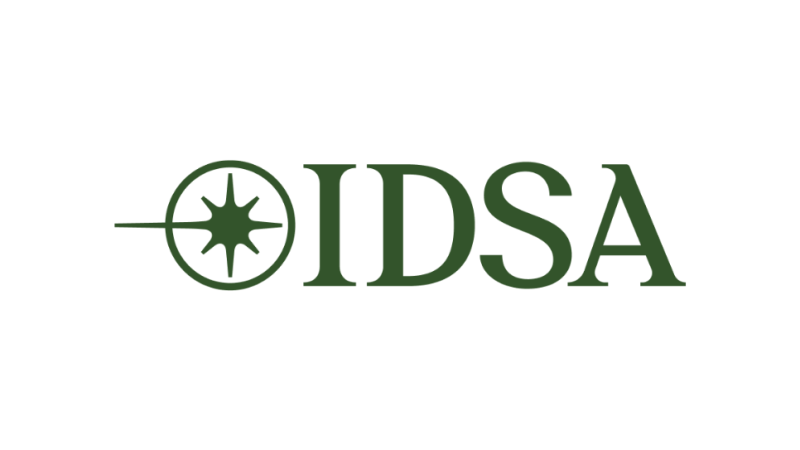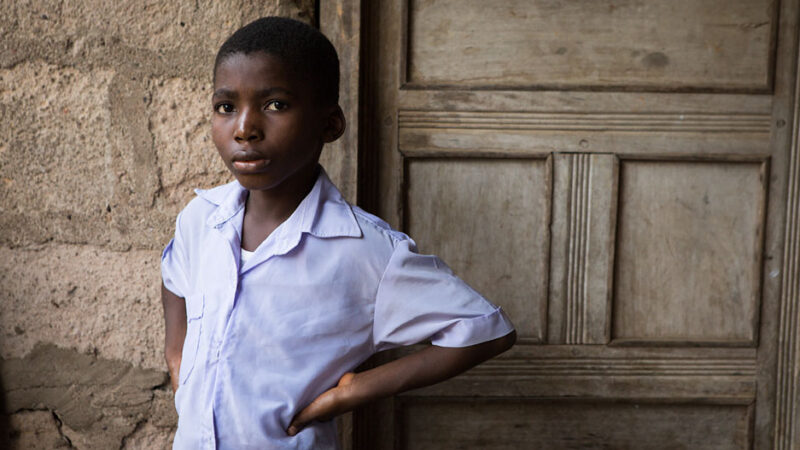
Schistosomiasis
- Health
- Schistosomiasis
We provide health education and treatment in partnership with the Federal Ministry of Health in Nigeria, the world’s most endemic country for this preventable but devastating disease.
Focus Areas
What is schistosomiasis?
Schistosomiasis, also known as bilharziasis or “snail fever,” is a waterborne parasitic infection that damages internal organs. The most common symptoms are blood in urine or feces, an enlarged liver, diarrhea, abdominal pain, weakness, and anemia.
The disease is contracted when a person has contact with contaminated water, often through daily activities such as swimming, bathing, washing laundry, or fetching water. It most commonly affects school-age children, who encounter the parasite during their daily chores or while at play in fresh water.
The parasite can live for years in the veins near the bladder or intestines, laying thousands of eggs that tear and scar internal organs. Snails become infected when fresh water is contaminated by eggs excreted in human urine and feces. The snails release a form of the parasite that infects humans whose skin is exposed to water.
REAL LIVES, REAL CHANGE
Investing in the Next Generation
At 13, Jude Musa showed off his football skills and his backflips in the water. He ran around with friends in his Nigerian village of Gidan Gimba, looking as carefree as any other teenage boy.
But three years earlier, when he saw blood in his urine, Jude wasn’t certain he’d have a future.
“I was thinking maybe I have a sickness, maybe it will damage my life,” he said.
Jude had schistosomiasis, a disease caused by freshwater parasites that damage internal organs. It mainly affects children, stunting growth and causing long-term health problems.
The Carter Center partners with the Nigerian Federal Ministry of Health to control schistosomiasis, helping to distribute praziquantel, a drug that easily treats the disease and restored Jude’s health.
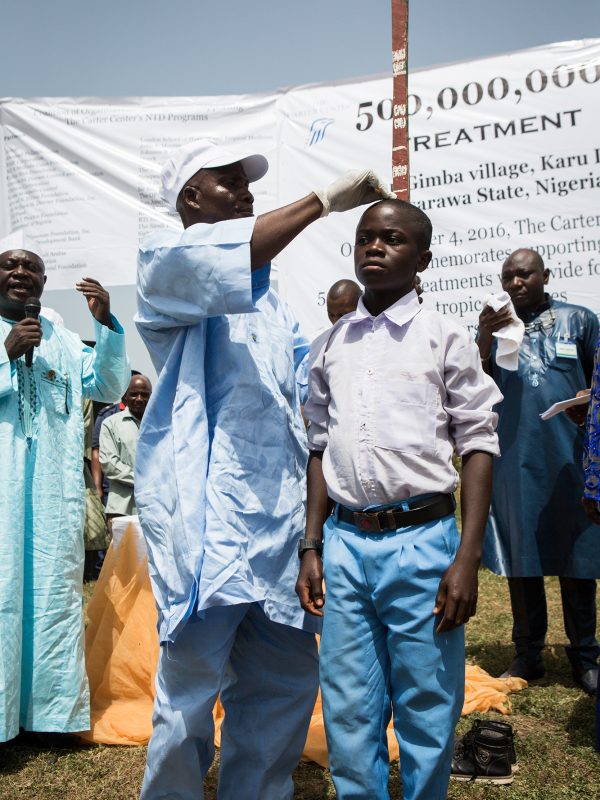
How widespread is the disease?
In terms of socioeconomic and public health impact, schistosomiasis is among the most devastating parasitic diseases in tropical countries. More than 250 million people worldwide need treatment for schistosomiasis. And, of those, about 34 million — mostly children — are in Nigeria, the most endemic country for the disease.
For communities already burdened by poverty and scourges like malaria and tuberculosis, schistosomiasis is especially devastating, as it weakens resistance to other infections and prevents children from reaching their full potential. An infection with the disease can result in anemia, stunted growth, delayed development, chronic debility, and sometimes premature death.
We focus on nine states in Nigeria, the most endemic country for schistosomiasis, targeting treatment of over 4 million children.
Our Strategy
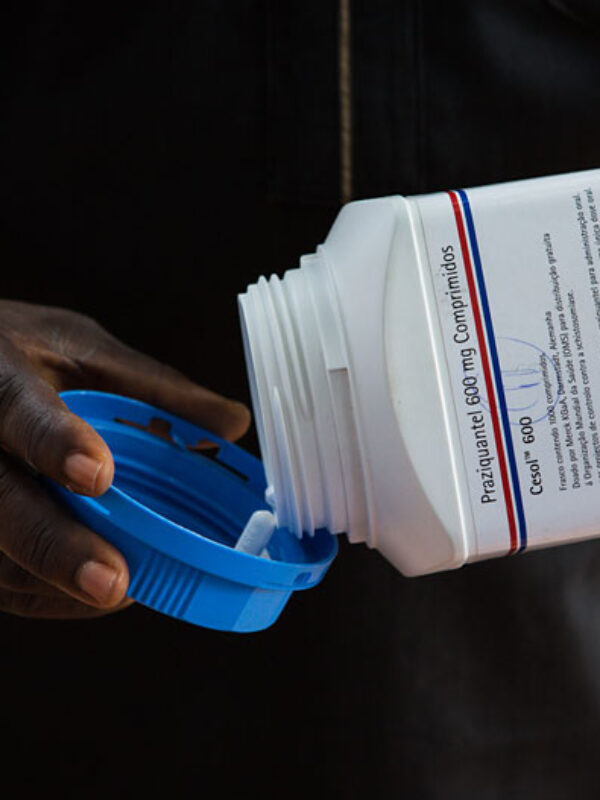
By the Numbers
1
Number of doses of praziquantel needed to control and treat schistosomiasis, with a single dose reversing up to 90% of the damage caused by the parasite.
33M
Number of praziquantel treatments delivered in Nigeria, with assistance from The Carter Center, since 1999.
50%
Approximate percent reduction in the presence of blood in schoolchildren’s urine — a telltale sign of schistosomiasis infection — in Plateau and Nasarawa states since 1999.
Research & Expertise
Explore insights from Carter Center experts and partners on the fight against schistosomiasis, with articles and publications highlighting strategies, research, and progress toward control.
Spotlight on Schistosomiasis
Global Impact Starts with You
Your support sustains the Carter Center's mission of waging peace, fighting disease, and building hope around the world.

